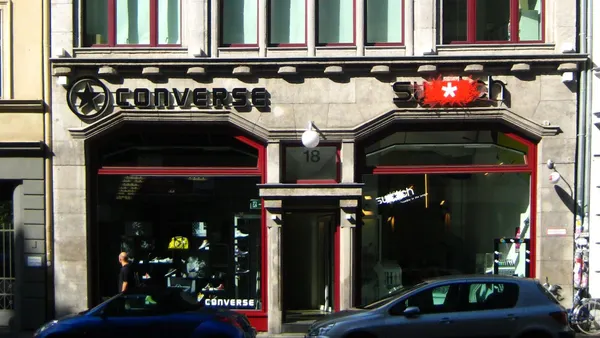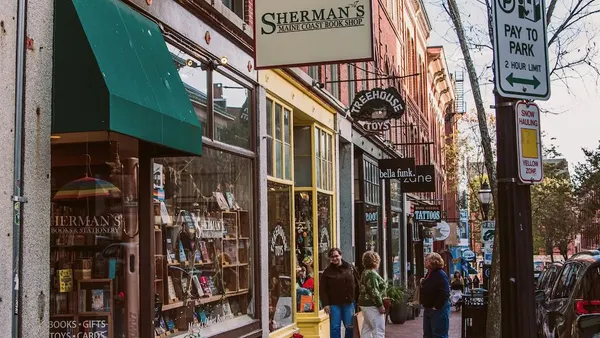Dive Brief:
- A federal bankruptcy court on Wednesday approved Gordmans Stores’ liquidation plan that transfers the bulk of its assets to another retailer and pays off the chain’s secured creditors, according to court filings.
- During the Chapter 11 process, specialty department store retailer Stage Stores agreed to buy more than 50 of Gordmans stores, as well as its website, fixtures, inventory, furniture, rights to leases on other stores and distribution centers, and Gordmans intellectual property, among other assets, for $36.1 million. Nearly 50 more stores were closed during the bankruptcy, according to court documents.
- Stage reported in September that its acquired Gordmans stores had added $55.5 million to its net sales for the second quarter, resulting in an 11.4% bump in its top-line sales, to $377.1 million, compared to the prior-year period. In its company history, Stage now marks 2017 as the year "Stage Stores entered the off-price segment with strategic Gordmans acquisition."
Dive Insight:
Gordmans will get a second life after bankruptcy under the Stage umbrella. That is just one of a handful of outcomes we’ve seen during a year of record bankruptcy filings that have ended in liquidations, sales and a growing number of reorganizations intended to save retailers as independent going concerns.
Founded just over 100 years ago, Nebraska-based Gordmans Stores was once a fixture in the Midwest. After opening a group of stores that sold department store merchandise at a discount in 1975, the company went on to operate more than 100 stores at its height.
But the discount department store did not adapt quickly enough to changing consumer demand for e-commerce, launching a website in just 2015. The retailer said in court documents that online sales made up less than 1% of its sales over the past year.
Gordmans was purchased by private equity firm Sun Capital in 2008 and expanded its store fleet rapidly, mirroring the expansion of department stores like J.C. Penney and Macy’s at the time. In recent years, though, Gordmans has been plagued by declining foot traffic and plummeting sales. Sales fell 75% in the past year alone, and in January, the company announced an unspecified number of job cuts amid "the current sluggish retail environment."
Compounding and accelerating the retailer’s problems, its vendors ran into trouble financing shipments to Gordon’s as factors and other vendor financing companies tightened their lending amid the downturn in retail and at Gordons. The company said in court documents that by February, "factor and vendor credit was effectively shut off, causing the debtors to purchase inventory on shorter terms or even on a cash-on-delivery basis." That reduced the company’s liquidity and "created a negative feedback loop," according to Gordmans. "Without the flow of fresh inventory, [Gordmans] retail business would not be sustainable," the company told the court.
In March, the company ran 106 stores in 62 markets and 22 states and carried a debt load of about $85 million. That month, speculation of an imminent bankruptcy caught wind, and the retailer eventually filed for Chapter 11 bankruptcy protection mid-March, announcing a slew of job cuts around the same time.
Just weeks after bankruptcy, ex-Gordmans CEO (and the founder’s great-grandson) Jeff Gordman challenged regional department store chain Stage Stores in a bid to regain control of his family company. Ultimately, Stage Stores won the rights to Gordmans intellectual property — about 50-plus store leases.











